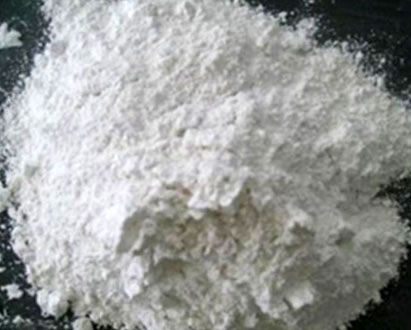
Arsenic Trioxide
HPG Metal - Importer and Exporter of Arsenic Trioxide in India. HPG Metals has made a name for itself in the list of top suppliers of Arsenic Trioxide in India. We offer a complete choice of products and a wide range of Arsenic Trioxide in various forms more of high purity.
We offer other metal products also: Selenium, Cadmium, Arsenic, Antimony trioxide, Tin ingots, Manganese Metal, Cobalt Powder, Antimony Ingot, Tellurium, Bismuth Trioxide, Fluorspar, Low Carbon Ferro Chrome, Ferro Molybdenum, Ferro Phosphorous, Ferro Silicon, Ferro Silicon Magnesium, Ferro Niobium, Ferro Titanium, Ferro Manganese
Hpg Metals India Pvt Ltd Provide best Arsenic trioxide, a naturally occurring mineral compound that was once widely known for its poisonous effects, is now being used as an effective treatment for certain types of cancer. However, few people understand what arsenic trioxide is and how it works in the body. In this blog post, we'll explore this fascinating compound and delve into its mechanisms of action in fighting cancer cells. Whether you're a medical professional or simply curious about this powerful substance, read on to learn everything you need to know about arsenic trioxide!
We provide Arsenic trioxide is a white, odourless solid that is used in the production of glass, ceramics, and semiconductors. It is also used as a herbicide, insecticide, and wood preservative. Arsenic trioxide is highly toxic and exposure to it can cause serious health problems.
Arsenic trioxide (As2O3) is a cancer medication that interferes with the growth and spread of cancer cells in the body.
Arsenic trioxide is used to treat a specific type of leukemia called acute promyelocytic leukemia (APL). APL is a type of blood cancer that starts from immature white blood cells in the bone marrow. Arsenic trioxide works by causing the abnormal blood cells to mature and die.
Arsenic trioxide can also be used to treat other types of cancer, including ovarian cancer, lung cancer, and bladder cancer. It is usually given as an intravenous (IV) infusion over a period of several hours.
Arsenic trioxide is a chemical compound that has a variety of uses. It is most commonly used in the production of glass and ceramics. It can also be used as a herbicide, insecticide, and rodenticide. In addition, it has applications in the medical field, such as the treatment of cancer.
Arsenic trioxide is a FDA approved cancer medication used to treat a type of blood cancer called acute promyelocytic leukemia (APL). Arsenic trioxide works by causing cancer cells to die.

Common side effects of arsenic trioxide include
- Nausea and vomiting
- Diarrhea
- Headache
- Dizziness
- Weakness or tiredness
- Muscle or joint pain
- Skin rash or itching
Serious side effects of arsenic trioxide can include:
Interstitial lung disease (ILD) – This is a rare but serious condition that causes inflammation in the lungs. Symptoms can include shortness of breath, coughing, and fatigue. If you experience these symptoms, contact your doctor immediately.
Severe myelosuppression – This is a decrease in the production of blood cells by the bone marrow. Symptoms can include easy bruising or bleeding, weakness, and fatigue. If you experience these symptoms, contact your doctor immediately.

Is Arsenic Trioxide Poisonous?
Arsenic trioxide is a naturally occurring oxide of arsenic. It is a white, crystalline solid with a melting point of 817 °C and a boiling point of 933 °C. Arsenic trioxide is slightly soluble in water and insoluble in most other organic solvents.
Arsenic trioxide is poisonous if inhaled, swallowed, or absorbed through the skin. Symptoms of arsenic poisoning include vomiting, diarrhea, abdominal pain, drowsiness, convulsions, and coma. Chronic exposure to arsenic can cause cancer of the lungs, skin, and bladder.
Short-term side effects typically go away after a few days or weeks of treatment. However, some people may experience more serious side effects, such as: anemia (low red blood cell counts) leukopenia (low white blood cell counts) thrombocytopenia (low platelet counts) liver damage kidney damage
Long-term side effects of arsenic trioxide can occur if the drug is not used properly. These side effects can be serious and even life-threatening. Some of the more common long-term side effects associated with arsenic trioxide use include anemia leukopenia thrombocytopenia liver damage kidney damage.
The Cost of Arsenic Trioxide
Arsenic trioxide is a highly effective treatment for acute promyelocytic leukemia (APL), but it can be expensive. The cost of arsenic trioxide depends on a number of factors, including the type and brand of drug, the dosage, and the length of treatment.
Generic arsenic trioxide costs between $30 and $60 per vial, while branded versions may cost up to $100 per vial. A typical course of treatment with generic arsenic trioxide would cost between $900 and $1,800. The cost of branded arsenic trioxide would be significantly higher, typically around $3,000 or more.
Insurance coverage for arsenic trioxide varies depending on the insurer and the patient's individual plan. Some patients may have to pay for all or part of their treatment out-of-pocket. Financial assistance programs are available from some manufacturers to help patients with the cost of arsenic trioxide.
Arsenic trioxide is typically administered as an intravenous (IV) infusion over a period of several hours. The infusion can be given in a hospital setting or at an outpatient center. In some cases, the arsenic trioxide may be mixed with other chemotherapeutic agents and given as part of a multi-drug regimen.
Conclusion
Arsenic trioxide is an inorganic compound with the formula as_2O_3. It is a white, crystalline solid that is odourless and insoluble in water. Arsenic trioxide is used as a medication to treat leukemia and other cancers. It works by causing cell death.
In conclusion, arsenic trioxide is a naturally occurring and potentially dangerous form of arsenic that can be found in the environment. It has many medical applications and can be used to treat certain types of cancer, but it also poses health risks if not handled with care. It's important to understand how this compound works so that proper safety precautions can be taken when using it. With this information, healthcare providers and researchers alike will be better equipped to effectively use arsenic trioxide in order to provide safe treatments for patients suffering from cancer or other conditions.
